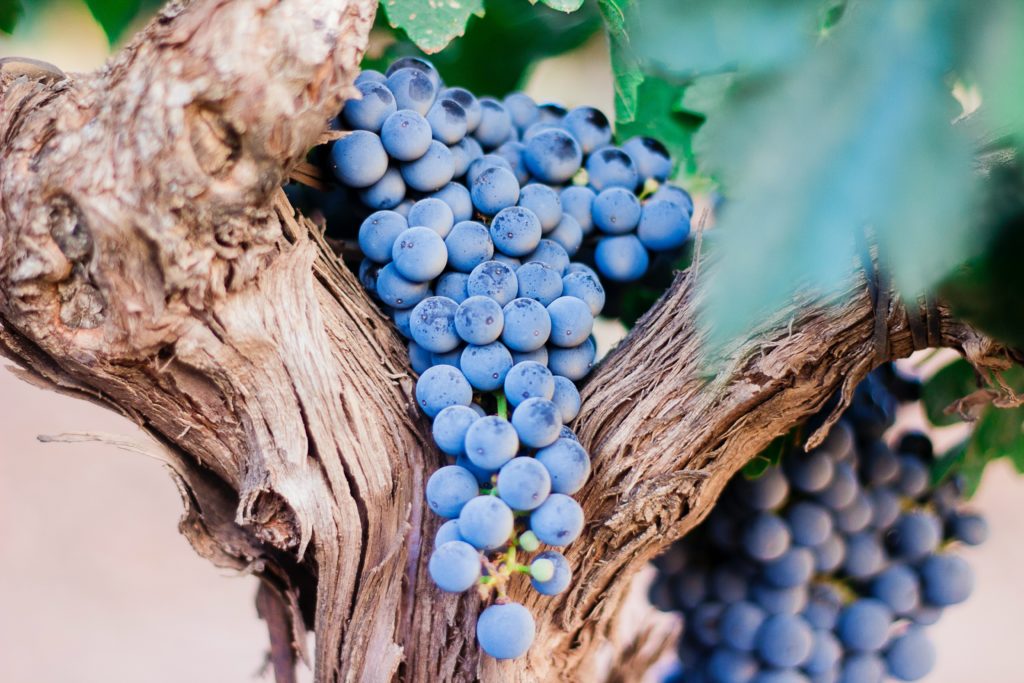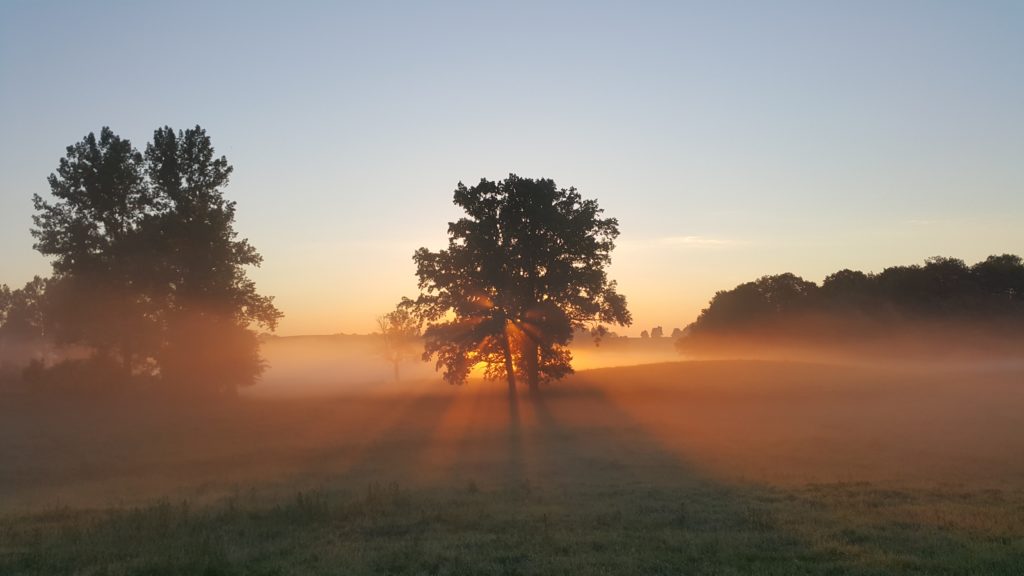Father Chet, March 31, 1973
Frequently, and perhaps counter-intuitively, one reason why sincere Christians feel compelled to separate themselves from others is a fear and insecurity in their possession of the truth. They see their hold on the truth being threatened by the strong position of those who disagree with them. They realize that, if they stay close to those with whom they disagree, their own faith may be lost. So, for the sake of survival, they dissociate themselves from such people.
If that is the case, then the first step toward preserving unity is to do something positive to strengthen faith. A stronger conviction of God’s truth and mercy will help overcome fear and insecurity. Likewise, a deepening knowledge about God, Christ, and the Church will give a much more secure foundation upon which to base faith and hope.
Trust in God’s Truth
Ultimately, to conquer fear and insecurity requires a courageous, even blind trust in God’s loving care. There is always an element of risk and uncertainty in life; but once we overcome our hesitation in trusting God’s loving care, we should experience a certain peace and self-assurance.
We will be the richer, and not the poorer
No longer will we be upset when others disagree with us. We will be willing to let them express their views, and we will ask for the privilege to air ours. We will be open to whatever new insights they might have to share with us; and to our amazement, perhaps to our chagrin, we will discover that they often have something worthwhile to contribute. We will be the richer, and not the poorer, when we risk the triumphal security of our own faith and take seriously other points of view concerning God’s truth.
A Conviction of God’s Guidance
Too often the overly conscientious person feels that the future depends more on their personal decisions than is actually the case. This intensity of personal concern for the future of the church would be greatly relieved if we were really convinced of God’s loving care for the whole of creation.
A viable form of faith is to believe that Almighty God is ultimately guiding the whole course of human history, as well as the life of every sincere individual, down through the ages. (It is possible to go to extremes in our belief in this divine guidance so that we deny human freedom and responsibility, treating everything as predestined; but because this extreme is wrong does not negate the validity of a balanced trust in God.)
Freedom and Divine Providence
We are constantly presented with the paradox of human freedom and divine providence. At this stage of human development and knowledge of divine revelation, it is impossible to determine exactly where freedom stops and providence begins, or how the two relate to each other.
There are enough statements in sacred Scripture, however, to give us the needed assurances to accept God’s loving and constant guidance of the history of humankind, the history of Christianity, and the history of every human individual who is sincerely open to God’s will. The text which has always meant the most to me in this regard is Romans 8:28: “For those who love God, all things work together unto good.”
If we can bring ourselves to believe that the major share of the responsibility for the future is in God’s hands rather than our own, we will be more tolerant of situations and people whom we perceive to be destructive of truth and unity.
If there is something immediately apparent that we can do to remedy the situation or change the attitude of people more favorably toward God, we should make the necessary effort; but, for those things which are beyond our control, we must be willing to put them in the hands of God. Anything less than this is apt to make us pessimistic in our attitude toward history as a whole, as well as toward other people, and perhaps even toward our own chances of success in life.
New Wine – Fresh Wineskins

In the second chapter of St. Mark’s gospel, our Lord reminds us that no one puts new wine into old wineskins. In the time of the Gospels, wine was kept in goat skins. These skins were kept from year to year and used to store fermented wine. However fresh, new skins were used for new wine; otherwise, in the process of fermentation the new wine would burst the brittle old skins, and both skin and wine would be lost.
Jesus uses this example of new wine and wineskins to emphasize that he brought to the world something quite new. In order to accept this new inbreaking of God’s light and grace, people had to be flexible and responsive like new wineskins. If one was hard, brittle, or resistant to change, they would be unable to contain the new power of truth embodied in Christ’s words.
New Day
It is my conviction that, in this present generation, we are experiencing another in-breaking of God’s power. Substantially, it is the same wine that was first introduced by Jesus of Nazareth some 2000 years ago; but it seems that this “old wine” of Christ is undergoing a new fermentation, a new awakening of life and energy. Definitely, something new is being introduced into the relationship between God and humankind as we witness the change and growth occurring in the area of religion and Christian faith that matches the tremendous growth occurring in other areas of human knowledge.
This being so, all of us need to shed our old skins and find fresh wine skins to contain the new fermentation taking place. If we remain full of fear, or hard, brittle and resistant to the pressures of change, the new wine of truth will burst out and be wasted. We must open ourselves to new truth and be more flexible in adjusting to change.
Accepting Change
We must overcome the pride which binds us to anything new and different from what we accepted as true in the past. In the first in-pouring of Jesus’s new wine, the Pharisees were convinced that they already knew how God acted and what God expected of them. They prided themselves on their scrupulous and exact fulfillment of every requirement of the old law. Yet, when the word of God spoke to them through Jesus, they resisted with all the power and energy at their command. Like old wineskins, they were so stiff and set in their ways that the new wine of Christ burst forth and was lost to them.
Establishing the Kingdom is an Ongoing Process
God the Creator is constantly injecting new truth into the course of history. No matter how well we understand the natural causes of things, we must always reckon with the element of the new and unexpected in the events of each day. Grace and redemption usually come to us in unexpected and novel ways.

The in-breaking of God is not limited to biblical times. The work of God’s creation of a kingdom on earth is an ongoing process – a process that we are privileged to participate by keeping ourselves ever open to each new infusion of God’s truth and grace. The kingdom of God is a foregone conclusion only in the sense that we have the assurance of sacred Scripture that one day it will surely come about. Whether and to what extent it will occur in our lifetimes is dependent upon the mysterious designs of God’s providence.
It is also dependent upon the degree of our cooperation, our openness to God’s will, our willingness to abandon our past positions and to accept the new wine of truth being poured out upon the world in our generation. Finally, the progress of the kingdom of God on earth is dependent upon the degree and intensity of our love and service to our brothers and sisters.
A Kingdom of Love
God’s kingdom is essentially a kingdom of love, and the most apparent sign of the presence of love is the unity and harmony which exists among all the members of a community.
So, for God, for the establishment of God’s kingdom, for the peace and harmony which Jesus Christ came on earth to initiate, for our own welfare and that of all mankind, let us strive with all our might to bring about and maintain unity. The continued existence and betterment of humankind upon earth is dependent upon our success in overcoming our divisions and attaining true unity based on justice and love.
Editor’s Note: This is the second part of Father Chet’s message on unity in the Catholic Church (see part one).
